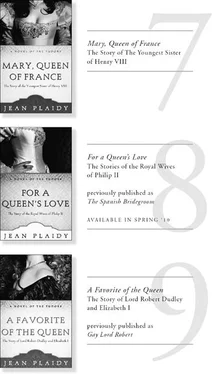Jean Plaidy - The Murder in the Tower - The Story of Frances, Countess of Essex
Здесь есть возможность читать онлайн «Jean Plaidy - The Murder in the Tower - The Story of Frances, Countess of Essex» весь текст электронной книги совершенно бесплатно (целиком полную версию без сокращений). В некоторых случаях можно слушать аудио, скачать через торрент в формате fb2 и присутствует краткое содержание. Жанр: Старинная литература, на русском языке. Описание произведения, (предисловие) а так же отзывы посетителей доступны на портале библиотеки ЛибКат.
- Название:The Murder in the Tower: The Story of Frances, Countess of Essex
- Автор:
- Жанр:
- Год:неизвестен
- ISBN:нет данных
- Рейтинг книги:3 / 5. Голосов: 1
-
Избранное:Добавить в избранное
- Отзывы:
-
Ваша оценка:
- 60
- 1
- 2
- 3
- 4
- 5
The Murder in the Tower: The Story of Frances, Countess of Essex: краткое содержание, описание и аннотация
Предлагаем к чтению аннотацию, описание, краткое содержание или предисловие (зависит от того, что написал сам автор книги «The Murder in the Tower: The Story of Frances, Countess of Essex»). Если вы не нашли необходимую информацию о книге — напишите в комментариях, мы постараемся отыскать её.
The Murder in the Tower: The Story of Frances, Countess of Essex — читать онлайн бесплатно полную книгу (весь текст) целиком
Ниже представлен текст книги, разбитый по страницам. Система сохранения места последней прочитанной страницы, позволяет с удобством читать онлайн бесплатно книгу «The Murder in the Tower: The Story of Frances, Countess of Essex», без необходимости каждый раз заново искать на чём Вы остановились. Поставьте закладку, и сможете в любой момент перейти на страницу, на которой закончили чтение.
Интервал:
Закладка:
Essex, questioned by the Commission, was becoming eager to see an end to the proceedings and freedom from a marriage which was growing more and more distasteful as the case progressed; he now seemed ready to accept the slur of impotence for the sake of that freedom.
He was not in truth impotent, he told them, but he had no desire for his wife. He had loved her when he left France and came to England, but he no longer did so, and never could again.
It was suggested that a certain bewitchment might have been put upon him, which would explain why he was able to be a good husband to some woman but not to his wife.
Still the case was not settled and James was annoyed, for now it was being talked of in the streets and it was said that if a woman wanted to rid herself of a husband all she had to do was declare him impotent.
He summoned the Commissioners to Windsor where he was at that time and with them came Frances’s father, the Earl of Suffolk, who during the journey had talked with several of the members of the Commission and told them that he and lords Northampton and Rochester were growing impatient. They asked for a simple matter to be settled and these lords deliberately thwarted them. He hinted at rewards which would be given to the acquiescent; punishments which would befall the dissenters.
By the time the Commission appeared before James, several of its members had changed their minds and were opposing the Archbishop of Canterbury. But old George Abbot was not going against his principles whatever the advantages … or disadvantages.
James was not displeased that there should be this difference of opinion, because it gave him an opportunity of debating, an occupation from which he derived much pleasure, particularly if the subject was a theological one. He prided himself on being more learned in the scriptures than any priest and he could always back up his arguments with quotations.
He summoned George Abbot and engaged him in discussion. The Archbishop was tired and James was alert. Every point which the priest brought forward James quashed with a quotation from the Bible and his own subtle argument. He would have found arguments and quotations to oppose himself had it been necessary; but that was one of the joys of debate. James could have made a brilliant case for either side. He was not called the British Solomon for nothing.
It was said in the Bible that a man should take one wife and cleave to her until death parted them. Ah, but it may well have been that when that had been written the hideous cult of witchcraft had not appeared to sully the Earth. What had happened was that Essex had been bewitched. He was made impotent as far as his own wife was concerned. When they had wiped out witchcraft, cases such as this would never arise.
James was off on his favorite hobby horse. Ever since he believed he had proved that witches had tried to drown the Queen and prevent her reaching Scotland, he had become incensed by the very word witchcraft. On account of his hatred of this, witch-finders were flourishing throughout the kingdom and every day some old woman would be dragged before the judges and put to the tests.
It seemed to James that witchcraft was behind every evil scheme that was ever brought to light; and he believed it possible that witchcraft had made a normal married life impossible now and for ever between the Earl and Countess of Essex, and therefore the best thing that could happen would be to dissolve their marriage and let them both find partners elsewhere.
He reminded the Archbishop of events which had taken place when he was but a lad in Scotland. One concerned a woman who had been forced into marriage and ran away from her husband to whom her father insisted that she return.
“And the result, man. She poisoned him and was burned for it. Ye canna jerk a woman back to a husband and he to her when evil witches have juggled with them. Remember this, and disband the Commission. It shall meet again when you have had time to brood on it. It may be necessary to have a bigger Commission. The more heads to ponder on this the better.”
So there was to be a pause before the new Commission sat; and it gradually became known that the King was ready to reward those who gave the verdict he wished. Honors were given to some who pledged their support; Court wits referred to blessings bestowed as Nullity Honors; and when the Bishop of Winchester—who had shown himself zealous in the cause of Rochester and the Countess of Essex—brought his son to Court to receive an accolade, the young man was jokingly called: “Sir Nullity.”
It was comforting for Frances and Rochester to know that the King was so fervently on their side.
But they were still waiting for the divorce.

In his prison Sir Thomas Overbury was aware of changes. A lassitude had overtaken him; he suffered from sickness and griping pains.
“I shall die of melancholy,” he said, “if I remain here much longer. Prison sickness is already beginning to overtake me.”
His weight had rapidly decreased and his face had lost its once healthy glow; his skin was pallid and damp and there were days when he was too ill to rise from his bed.
He wrote to his parents and told them that his health had deteriorated in the last weeks and that if something was not done to bring him out of his prison he feared he would die.

Sir Nicholas Overbury and his wife were alarmed when they read this letter.
“I cannot understand it,” said Lady Overbury. “Why have they sent him to the Tower? He appears to have done nothing but refuse an appointment. Is this justice?”
Sir Nicholas shook his head and said that they could only guess at the strange behavior of people in high places.
“But Viscount Rochester was so fond of him. Our Thomas was one of the most important men at Court.”
“It is the important men at Court who are the most vulnerable.”
“I don’t intend to let matters rest as they are. We must go to London and see what can be done.”
Sir Nicholas could see that his wife was determined and as he too was growing anxious on his son’s account he agreed that to London they must go.
“I should like to see the King and ask his help,” said Lady Overbury.
That was an absurd suggestion, her husband knew, for humble people such as they were could not call on the King.
“We might send a petition,” he suggested.
“Explaining,” added his wife, “how anxious we are.”
They did so, begging the King to allow some physician to attend their son.
James read the petition and understood the parental concern behind it. He wrote kindly to the Overburys personally, telling them that he was sending one of his own physicians to see their son.

Sir Nicholas felt that he and his wife had already done some good, and when he heard that his son was suffering from some unspecified disease natural in the circumstances, he was very anxious to see him; he wrote to Viscount Rochester begging him to seek the necessary permission for the parents to visit their son.
Rochester, moved by the letter, was about to say he would arrange at once for the parents to see Sir Thomas, but before making a decision he consulted with Northampton.
Northampton knew far more than Rochester; and he was very suspicious of the prisoner’s illness. It could not be long before Overbury began to suspect that the sudden sickness which had overtaken him was not due to natural causes; and then there might be serious trouble. What, wondered Northampton, was Frances up to now? He was certain that she would never let matters take a natural course and she had far more reason to fear Overbury than she had allowed even him to understand.
Читать дальшеИнтервал:
Закладка:
Похожие книги на «The Murder in the Tower: The Story of Frances, Countess of Essex»
Представляем Вашему вниманию похожие книги на «The Murder in the Tower: The Story of Frances, Countess of Essex» списком для выбора. Мы отобрали схожую по названию и смыслу литературу в надежде предоставить читателям больше вариантов отыскать новые, интересные, ещё непрочитанные произведения.
Обсуждение, отзывы о книге «The Murder in the Tower: The Story of Frances, Countess of Essex» и просто собственные мнения читателей. Оставьте ваши комментарии, напишите, что Вы думаете о произведении, его смысле или главных героях. Укажите что конкретно понравилось, а что нет, и почему Вы так считаете.











